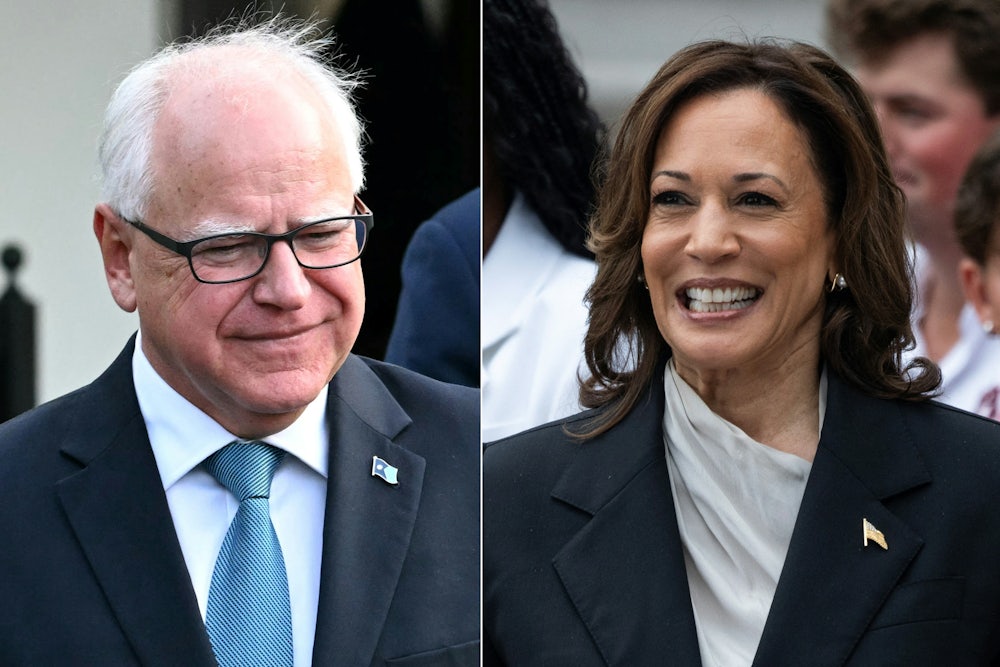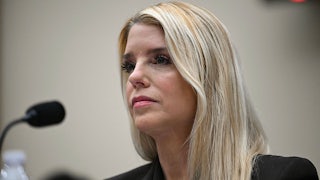Let’s start with Tim Walz’s
positive attributes. One: He’s an extremely successful two-term governor—in
fact, he’s almost certainly the most successful Democratic governor in the
country (go read about the “Minnesota
Miracle”). Two: He served 12 years in the House of Representatives, so he
has considerable Washington experience, serving on both the Veterans and Armed
Services committees. Three: He’s from the Midwest, which is a great thing—think
how often the Democrats are accused of ignoring “flyover country.” These were
all compelling reasons for Vice President Kamala Harris to pick him as her
running mate on Tuesday.
But let’s keep going. Four: Walz is a former high school football coach, and not in Minneapolis or St. Paul, but in a small town of around 8,000 people in Nebraska (he was born in Nebraska, in a town fortuitously named West Point). Later in his schoolteaching career, in the larger city of Mankato, Minnesota, he became the faculty adviser to the school’s first straight-gay student alliance. Five: He enlisted in the Army National Guard when he turned 17, and he spent 24 years in the guard. He never saw combat, but he attained the rank of command sergeant major. That is a great thing for a Democratic ticket. Six: His educational credentials are fantastic for a Democrat—his undergrad degree is from Chadron State College, and his master’s is from Minnesota State University, Mankato. Not only is his résumé unblemished by an Ivy League credential—he didn’t even make it to the University of Minnesota! This is good, people. Seven: He’s a pheasant hunter who owns guns (I might not normally applaud this, but it’s a handy thing for him to be able to say to swing voters, and, unlike Don Jr. and Eric’s lions and elephants, pheasants seem fair, well, game).
Eight: He has a folksy and plainspoken way about him. I saw a clip on X recently where he spoke of going to Menard’s to buy an air filter for his furnace. I assume this was for his house, not the governor’s mansion, but whatever, it was a great answer, and he’s the kind of guy you can actually picture doing that. Politically, yes, he’s pretty progressive in that Minnesota Democratic-Farmer-Labor Party tradition, but he doesn’t code that way. As Ed Luce observed on Morning Joe: “He doesn’t sound Berkeley at all.” And he’s the guy who came up with calling Donald Trump and J.D. Vance “weird,” which has memed its way to the top of the charts.
There’s more, but you get the point. He brings many positive attributes to the ticket. In any other context, he’d be seen across the board as a great and bold choice—a very coastal and very Bay Area figure like Kamala Harris reaching into the heartland to name a running mate who speaks Midwestern and looks deliriously happy holding a baby piglet at a state fair.
So why are some people unhappy?
Because, they say, this represents Harris “caving” to the left. And sure, it’s no secret that in some quarters of the left, Pennsylvania Governor Josh Shapiro, the other veep finalist, has been criticized not so much for his position on Israel per se but for some of his statements regarding the protests against what Israel is doing in Gaza and other comments, like his criticism of fired University of Pennsylvania President Liz Magill. TNR ran such a piece early on in these veepstakes, by David Klion, which laid out the issues. That piece was measured rhetorically, but other attacks have not been. Some criticism of Shapiro has verged into antisemitism, and that of course is completely unacceptable.
But over these last few days, I kept circling back to this thought: Putting Shapiro on the ticket would make it much more likely that the Democrats would spend the next 90 days debating where the party ought to stand on Israel instead of focusing on beating Trump. That would not be Shapiro’s fault at all. But that’s what would happen—especially if, God forbid, a wider war breaks out in the Middle East, which looks more and more likely. The Democrats want this election to be about Donald Trump and J.D. Vance and Project 2025 and abortion rights and freedom and their plans to help middle- and working-class people. The last thing they want the election to be about is the one issue that divides them more than any other.
What about Pennsylvania, the real main argument for Shapiro? Here, yes, Harris has rolled the dice a little. Nearly seven million people voted in the state in 2020, which Biden won by around 80,000 votes. Shapiro has a high approval rating, and if he increased Harris’s total by even 1 percent, that’s 70,000 votes, and that’s potentially meaningful.
I am on record as a Shapiro fan, especially on economics. I find this whole center-versus-left debate about him and Walz to be overstated. Shapiro isn’t as moderate as they’re making him out to be, and Walz isn’t as left. And to the extent that Walz is a traditional liberal, again, he has a folksy way of talking about it—he doesn’t lecture you. He was on CNN not long ago with Jake Tapper, who asked him about his long record of accomplishments like universal free school lunches, and weren’t these benefits just mad socialism (OK, Tapper didn’t put it that way, but Trump will). Walz: “What a monster! Kids are eating and having full bellies so they can go and learn.”
Shapiro partisans are of course disappointed. But it would be terrible for them to inject unneeded acrimony into this already tense situation. If enough Democrats go around saying that this choice represents Harris caving to the left—knowing full well that that is exactly what the Republicans will say—they’ll turn that into a self-fulfilling prophecy.
That would be poison. Let’s all keep our eyes on the prize here. The prize is stopping Trump. And what Harris has done here is not to cave to the left. She reached into the heartland, to a candidate with a long list of accomplishments and attributes. A daughter of Berkeley ought to be getting a lot of credit for that.






